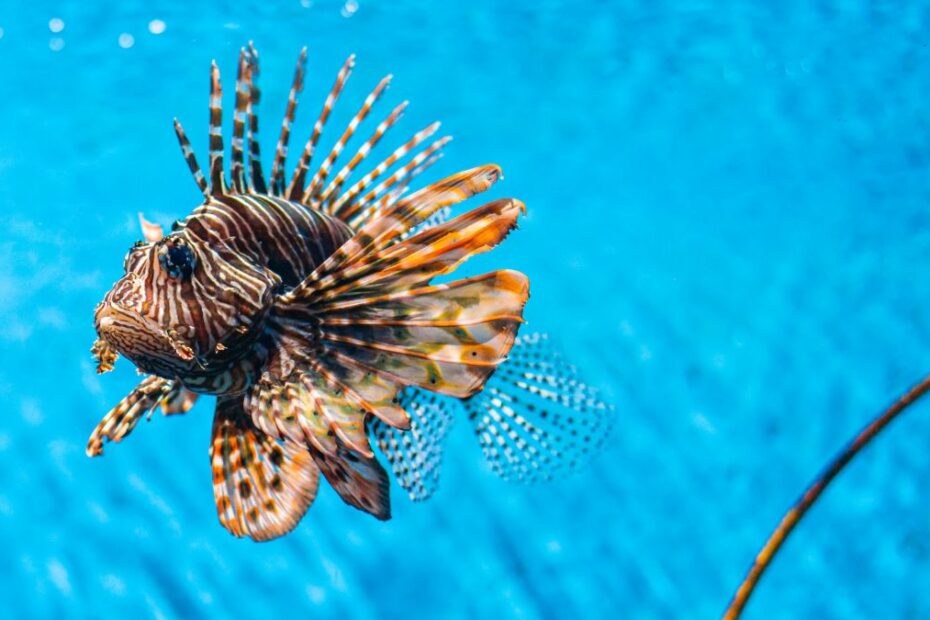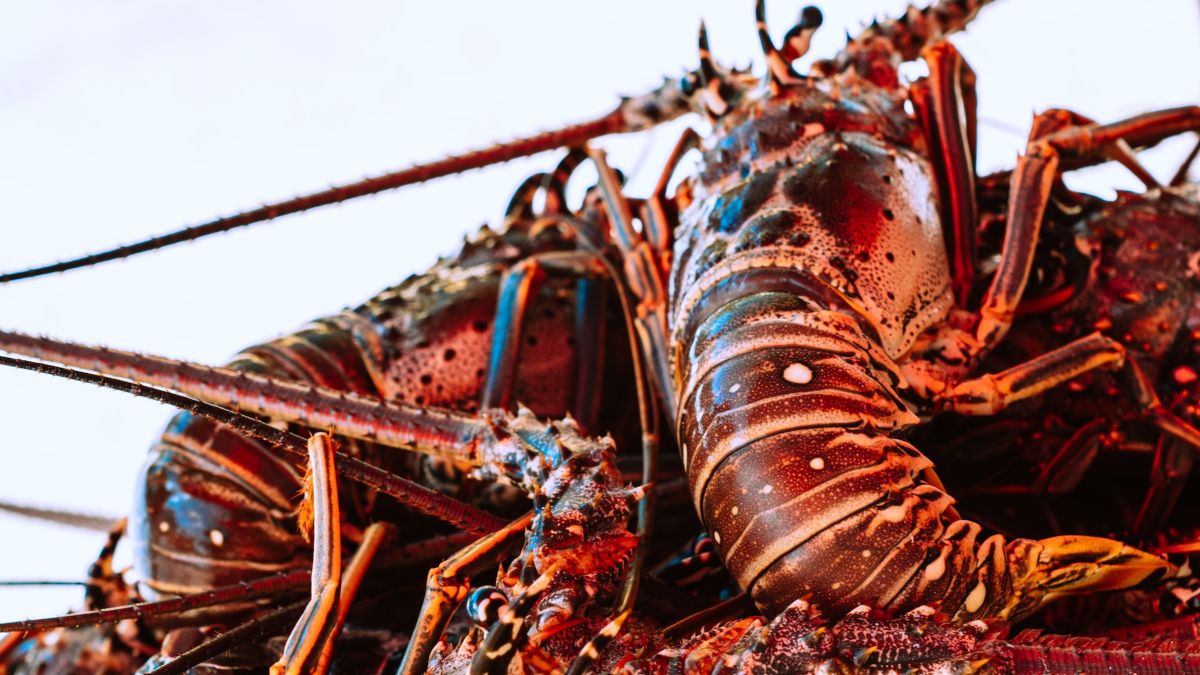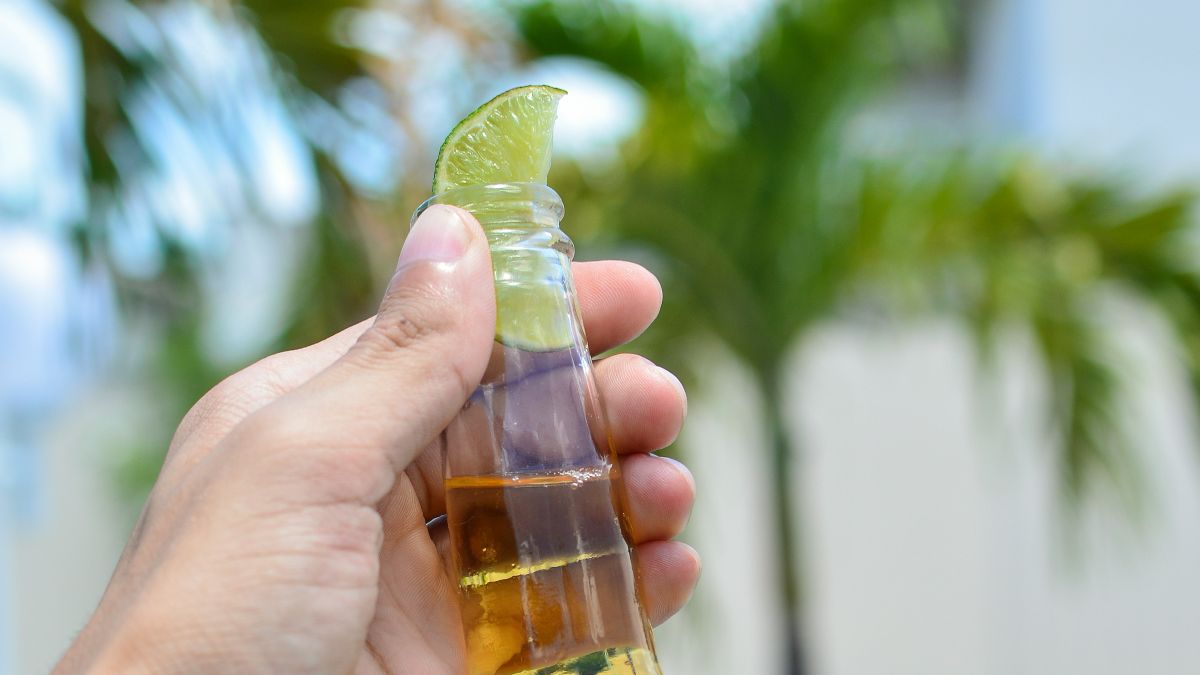Invasive lionfish in Honduras are ravaging local Caribbean reefs. But there’s something that you can do about it – start eating! This article contains links to Amazon, from which, as an Amazon Associate, this website will earn a small commission if you make any purchases. Visit our Affiliate Disclosure Page for more info.
I first noticed these fish through a friend who operated a dive boat out of Trujillo, Honduras. My wife, Charlene, and I had spent the day minding the boat topside while he, his partner, and a friend dove a wreck and went spearfishing. They came up with nets full of lionfish, their venomous spines still attached – they had forgotten to take scissors to cut them off before stuffing the catch into bags.
When we arrived back, the sea was choppy, and leaving the boat was a challenge. Without a dock, we had to jump into the water before wading ashore. As Charlene was standing to disembark, a large wave hit, causing her to stumble and fall towards the bag of fish with their exposed needles. Luckily, I caught her, preventing her from getting stung.
As we later found out, lionfish venom, contained in an array of up to 18 needle-like dorsal fins, can cause a mighty sting. Although agonizing to humans and potentially causing nausea and breathing difficulties, a lionfish sting is rarely fatal. Fortunately, we never discovered if Charlene would be more affected than others.
Later that evening, our friends cooked up a tasty feast of fried lionfish fillets. Slightly sweet-tasting, with a texture like halibut, I had never eaten a fish as delicious (other than salmon). It’s now my favorite fish dinner here in Honduras. This experience aroused my interest in these lovely looking, yet invasive fish.
View this post on Instagram
What are Lionfish?
Lionfish are natives of the vast Indo-Pacific region, ranging from the Red Sea to the Indian and Western Pacific Oceans, making them an invasive species in the Caribbean and the Americas. No one is sure how they arrived in the Caribbean, far from their native waters, but theories abound. Some believe they were accidentally released from a marine aquarium when Hurricane Andrew hit Florida in 1992. Others say they came in the ballast water of cruise ships emptied at Florida ports. Another theory is that home aquarium owners dumped unwanted lionfish into the ocean or even toilets.
However they arrived, lionfish have spread deep into the Caribbean over the past few decades, ravaging reefs across the region, causing tremendous damage to the ecosystem.
Lionfish have no natural predators in these waters and as such, they are crowding out local fish species. They also have a remarkable breeding ability – an individual female can produce two million eggs in a year, three to four times more than most native species. Moreover, lionfish can eat up to 30 times their stomach volume in a single day!
View this post on Instagram
Controlling Invasive Lionfish in Honduras
On the island of Roatán in Honduras, local divers are attempting to give sharks a taste for the alien reef species, hoping sharks may eventually keep lionfish populations under control. While these efforts haven’t worked well, lionfish have started devouring each other, although this likely won’t diminish their numbers much.
The best way to reduce the invasive lionfish population is simple: eat them! As I discovered in Trujillo, lionfish make very tasty eating. They’re also good for you, with high concentrations of heart-healthy omega-3 fatty acids, higher than many popular fish. And they’re low in metals like mercury and lead. Many dive operators and local organizations now organize special lionfish outings, taking tourists to catch as many fish as possible for local restaurants.
So if you see lionfish on the menu in Honduras, try them. You’ll find numerous restaurants serving lionfish whenever available, along the coast or on the Bay Islands.
At fish markets, pick up some fillets or whole lionfish. The white, buttery meat is perfect for frying, baking, ceviche, and more preparations – all excellent and safe once the venomous spines are removed. For tasty recipe ideas, check out The Lionfish Cookbook.
You won’t regret trying this delicious invader!
Paul McCurdy is a part-time resident of Trujillo, Honduras since 1996. He and his wife Charlene delight in sharing their experiences of Honduras on their Hola Honduras blog and on their Facebook page.




